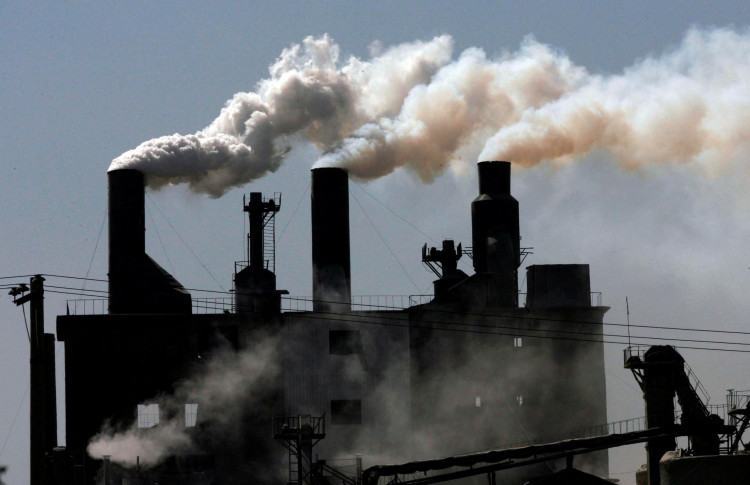For the first time this week, China's stocks fell as a historic drop in the earnings of industrial and manufacturing businesses offset hope that the Asian economic superpower and the United States is close to making a trade deal.
The Shanghai Composite Index weakened 0.1 percent, 3.88 points, to 2,903.21 at the close of session late Wednesday, while Hong Kong's Hang Seng Index gained 0.1 percent to 26,955.
Sentiment soured after the government's official report showed profits for Chinese industrial firms dropped almost 10 percent last month, from a year earlier.
That was the largest decline since the National Bureau of Statistics started to gather data in 2011 and supported the view that a slowdown in the economy has already affected corporate profits.
Investors did not put much weight on the comment by US President Donald Trump that Washington and Beijing were "in the final throes" of a tentative trade agreement.
According to Gerry Alfonso, Shenwan Hongyuan Group director of international business, the dismal figure of industrial profits "adds some pressure to the equity market."
"The global economy's slowdown and trade frictions are probably some of the main drivers behind the disappointing figure of industrial profit."
As one of the worst-performing markets, an index measuring industrial companies on the CSI 300 fell 0.8 points. Between them, Shanghai International Port Group was down by 2.5 percent to 5.59 yuan and Cosco Shipping Holdings retreated by 2.4 percent to 4.71 yuan.
China Zheshang Bank withdrew 4.5 percent to 4.75 yuan on the second day of trading, infringing its initial public offering price of 4.94 yuan. The IPO stocks are exchanged for profits 9.4 times, relative to the 7-fold industry average.
After Beijing said it was committed to the basic policy of long term contracting land for farmers, agricultural products and stocks shot up. Xinjiang Talimu Development was up 11 percent to 5.36 yuan and Jiangsu Agricultural Reclamation gained 6 percent to 6.95 yuan,
Alibaba Group Holding, which runs China's largest e-commerce platform, added 3 percent to HK$193.20, extending its debut gain of 6.7 percent on Tuesday.
MTR, Hong Kong's subway system operator, climbed 3.9 percent to HK$45 after Goldman Sachs raised its stock rating to buy from neutral and raised its target price to HK$54. That was the steepest increase on stock after city leader Carrie Lam officially removed the extradition bill 12 weeks ago.
China Capital Group, which operates businesses from financial services and K-12 education to car parts production, dropped 75 percent to 45 cents in Hong Kong before trading was suspended.





